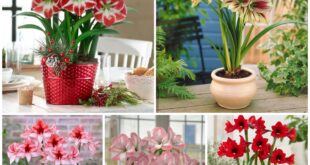Also known as Strelitzia reginae, this large indoor plant has long, glossy, banana-like leaves. It is native to South Africa and thrives in warmer temperatures between 60-80°F. Keep the bird of paradise away from heating and cooling vents to prevent it from drying out. Avoid frequent repotting as this can delay flowering for up to two years. This beautiful plant is mildly toxic to cats and dogs so it’s best to keep your furry friends away from it.
Size: 5 feet tall
Light: bright, direct sunlight
Water: From spring to autumn, the soil should be kept moist. During the winter, let the top two inches of soil dry out before giving it another drink.
Monstera
Monstera deliciosa is sought after for its huge, interestingly shaped leaves. This Insta-famous tropical plant is native to southern Mexico and Central America. It does best in environments that are 65-90°F. According to the ASPCA, monstera can be irritating to pets that sample a leaf or two, so you may want to keep the plant out of reach.
Size: Up to 30 feet tall.
Light: Strong, indirect light, but tolerates low light.
Water: While a monstera can tolerate semi-arid conditions, it should be watered sufficiently so that the soil does not dry out completely.
Elephant ear
For the plant parent who likes to fuss over their green family, elephant ear (Alocasia spp.) requires moderate care. It does best in moist conditions, so a well-lit bathroom is a good place for this plant to live. Be sure to also give its huge leaves a good dusting now and then and check the undersides for tiny webs that indicate spider mites. This plant is best kept away from furry family members.
Size: Its leaves can grow up to 18 inches long.
Light: Strong indirect light.
Water: Wait until the top three inches of soil is dry before adding water.
Peace lily is a tropical flowering plant native to South America. It has broad, dark green leaves and fragrant white flowers. Some varieties have variegated leaves. Peace lily will bloom more if it gets more light. It is best to keep this plant away from pets.
Size: Up to 4 feet tall.
Light: Strong, indirect light, but tolerates lower light levels.
Water: Add water once a week or when the top inch of soil feels dry.
Croton
This rather large-leaved houseplant grows multicolored leaves in red, green and yellow. Although it can grow successfully outdoors in warm areas, it can also grow well indoors, as long as it has enough light. Croton thrives in a warm, humid environment and should be brought indoors for the winter when outside temperatures drop below 50°F. This plant will drop its leaves if the temperature is too cold, or if it experiences drafts and low humidity. All parts of this plant are poisonous to pets, so it’s best to keep it out of the reach of furry friends.
 careyfashion.com Carey Fashion
careyfashion.com Carey Fashion














